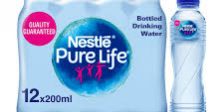The Importance of Staying Hydrated for Good Health
Water is essential for life, yet many people overlook the importance of staying hydrated. Our bodies are made up of about 60% water, and maintaining that balance is crucial for our overall health. Here’s why staying hydrated is vital and how you can ensure you’re drinking enough water every day.
Why Hydration Matters
Water plays a key role in many of our body’s functions. It helps regulate body temperature, keeps joints lubricated, aids digestion, and supports skin health. Proper hydration is also essential for brain function, ensuring that we stay focused and energized throughout the day.
When we don’t drink enough water, we may experience dehydration, which can lead to headaches, fatigue, dizziness, and confusion. Chronic dehydration can even contribute to more serious health problems, such as kidney stones and urinary tract infections.
How Much Water Do You Need?
The amount of water a person needs can vary depending on factors like age, activity level, and climate. A general guideline is to drink about eight 8-ounce glasses of water per day, also known as the “8x8” rule. However, some people may need more, especially if they’re physically active or live in a hot environment.
It’s important to listen to your body. If you feel thirsty, that’s your body’s way of telling you it needs more fluids. Additionally, eating water-rich foods like fruits and vegetables can contribute to your daily hydration needs.
Tips for Staying Hydrated
- Carry a water bottle with you throughout the day, especially when you’re out or at work.
- Set reminders on your phone to drink water at regular intervals.
- Drink water before meals; this can also help with digestion and prevent overeating.
- Infuse your water with fruits or herbs like lemon, mint, or cucumber to make it more enjoyable.
Conclusion
Staying hydrated is one of the simplest yet most important steps you can take to maintain good health. By making water a regular part of your daily routine, you’ll help ensure your body functions at its best and avoid the risks associated with dehydration.












